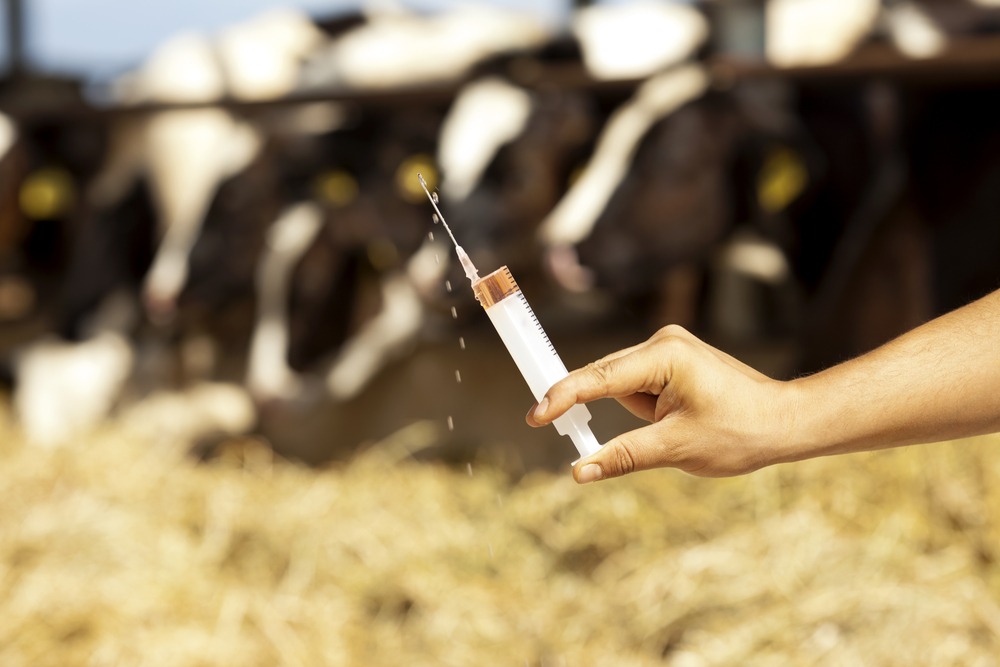This week we spoke with Belgian animal health startup ViroVet to learn more about its mission to tackle health and wellness in the livestock industry. The animal health space is a small but growing sector of agtech. Just a couple of months ago, animal health and antibiotic reduction technologies dominated the startup line-up at the FoodBytes! New York pitch contest event and ag-focused venture development organization TechAccel announced a partnership with Reliance Animal Health Partners to launch Covenant Animal Health Partners dedicated to the development and registration of revenue-ready animal health products.
As global appetite for protein-rich diets increases, ViroVet is hoping to improve farmers’ ability to combat viruses that can pose a serious threat to their livestock and the industry at large. Some livestock viruses can be devastating for a local economy, especially in areas of rural poverty or developing countries.
There are also Zoonotic diseases impacting livestock, which are transferable either directly or indirectly between humans and animals. These pose an additional layer of threat to human health.
Launched in 2015, ViroVet has developed a new type of vaccine and antiviral agent for livestock. It’s viral blockers reportedly stop viral replication and transmission of African Swine fever to other livestock in mere hours. It tackled application of its technology for pigs and goats and is working on applying the vaccines to other types of livestock.
Although current vaccines are available to address other viruses like foot and mouth disease, they are either packaged as inactive vaccines with a low efficacy rate or live vaccines that require cold storage – a logistical step that poses serious challenges out on the farm or in warm climates.
In 2017, the company raised $6.9 million (€6M) in a Series A led by PMV (through Biotech Fund Flanders) and Agri Investment Fund, with participation from Gemma Frisius Fund KU Leuven, Vives II and Aratana Therapeutics. It added another $1.76 million (€1.5M) at the end of 2017 through a raise with Capricorn Venture Partners to close its Series A.
What is your technology and what is it trying to solve?
We have developed a new vaccine technology that will allow us to produce thermally stable vaccines (no cold chain/cooling needed) at a lower cost of goods, and as it is a platform technology we can quickly adapt it to new pathogens or emerging threats.
What is your product?
Our products are primarily vaccines, the full name we use is plasmid launched live attenuated virus vaccines or PLLAV vaccines. We also develop antiviral agents for fast-spreading viral diseases (to bridge the immunity gap).
Who is your target customer?
Our products are targeted at the livestock industry, but this includes smallholdings in developing countries up to immense beef producers running multiple feedlots in the US.
What are some of the challenges that you’ve faced and how did you overcome them?
Attracting venture capital for an animal health start-up is still a challenge. You need to have a clear story and scalable technology/business and where possible show the link to human health or the societal impact. All the other challenges are research-related and typical for biotechnology companies.
What’s been the most surprising aspect of your startup journey so far?
The level of attention we get. We have won the start-up of the year award (by Informa – Animal Pharm) twice, we got support from GALVmed (funded by the Gates Foundation and the UK gov) and nearly all CEO’s of the top-10 animal health companies in the world will know us or has even talked to us.
Are there any other startups that you looked to for guidance or as a model when you were getting started and as you scale up?
We set our own benchmark back in 2008 when we launched Okapi Sciences, a company developing antiviral drugs for pets and livestock. Okapi Sciences was acquired about 5 years later by Aratana Therapeutics in 2014. ViroVet extracted the livestock products — as Aratana Therapeutics focuses on pets only — and together with the vaccine technology from KU Leuven we built the new company.
What’s your fundraising experience been like? Who are your investors?
The local ecosystem in Belgium is great for getting started so all investors come from ‘around the corner’. We have a mix of what you could call ‘strategic investors’ (university funds and the farmers union’s Agri Investment Fund) as well as more traditional VC’s.
How have your investors added value beyond capital? What do you look for in an investor?
At the start, money talks but still you want to bring the right mix of strategic investors and venture capital to the table. All of them bring their own network, views, and support which is great. For our next round, we will select international investors bringing strong ties to remote markets and to the animal health industry.
Consumers and food companies are increasingly concerned about the link between livestock production and antibiotic resistance. How does your startup fit into that issue?
Our products are also targeting upper respiratory viral diseases where antibiotics are used a lot to treat the secondary bacterial infections. So when we are successful, we will see a reduction in the use of antibiotics. We also started the development of bacterial vaccines using our PLLAV technology which could prevent bacterial infections and associated antibiotic use altogether.
Have you interacted with any corporate agriculture companies?
We have many contacts and even collaborations with corporate animal health companies.
Any advice for other startups out there?
Think big, be confident, and go for it.




